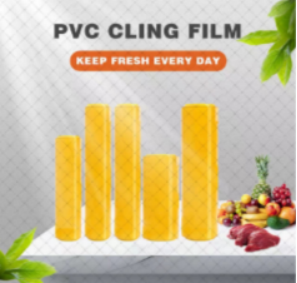Sustainable Alternatives to Plastic Bags for a Greener Future
The Rise of Bioplastic Bags A Sustainable Solution for a Greener Future
In recent years, the growing concern over plastic pollution has prompted individuals, businesses, and governments around the globe to seek alternatives to traditional plastic products. One of the most promising solutions to this environmental crisis is bioplastic bags, a sustainable alternative that could revolutionize the way we approach packaging and waste management.
Bioplastic bags are made from renewable biomass sources, such as vegetable fats, corn starch, or microbial processes, unlike traditional plastic bags that are derived from fossil fuels. This fundamental difference in sourcing not only makes bioplastics more environmentally friendly but also significantly reduces their carbon footprint. As traditional plastic takes hundreds of years to decompose, bioplastics can break down within a few months to a few years, depending on the specific materials used in their production. This property could alleviate some of the most pressing issues associated with plastic waste in landfills and oceans.
The adoption of bioplastic bags presents numerous advantages. Firstly, they contribute to a circular economy by utilizing renewable resources. This shift away from finite fossil fuels helps mitigate the depletion of nonrenewable resources and reduces our dependency on oil. By using crops or waste materials for production, bioplastic bags not only provide a sustainable packaging solution but also promote agricultural innovation and waste reduction.
Secondly, bioplastic bags are often designed to be compostable or biodegradable
. This means that, under the right conditions, they can return to the soil, enriching it rather than contributing to pollution. Compostable bioplastics can break down into non-toxic components, leaving no harmful residues, and can be processed alongside organic waste, offering an efficient waste management option.bioplastic bags

Furthermore, many bioplastic alternatives are designed to be compatible with existing recycling systems, meaning that they can be integrated into the current waste management infrastructure, allowing for easier disposal and recycling processes. This compatibility encourages consumers to choose bioplastics over traditional plastics, promoting a shift in consumer behavior towards more sustainable practices.
Despite these advantages, there are challenges to the widespread adoption of bioplastic bags. One of the main concerns is the agricultural impact of producing the raw materials required for bioplastics. The large-scale cultivation of crops like corn or sugarcane can compete with food production and may contribute to deforestation and biodiversity loss if not managed sustainably. It is crucial to ensure that bioplastic production does not adversely affect food supplies or the environment.
Additionally, the cost of bioplastics is currently higher than that of conventional plastics. As the technology advances and production scales up, these costs are expected to decrease, making bioplastics a more economically viable option. Governments, businesses, and consumers must support research and development in bioplastic technologies to overcome financial and logistical barriers.
The transition to bioplastic bags is not a panacea for the plastic pollution crisis, but it is a significant step towards a more sustainable future. By encouraging the use of bioplastics, we can reduce our reliance on traditional plastic products, minimize landfill waste, and foster a culture of sustainability.
In conclusion, bioplastic bags offer a viable alternative to traditional plastic, representing a shift towards environmentally responsible consumer behavior and production practices. As innovation continues and awareness grows, the utilization of bioplastic bags has the potential to significantly reduce plastic waste, thus contributing to a healthier planet. By choosing bioplastics over conventional options, individuals and businesses alike can play a crucial role in fostering a sustainable future and protecting our environment for generations to come.
-
The Best Uses for Small Trash Bags in Daily LifeNewsJul.01,2025
-
Stylish Reusable Grocery Bags TrendsNewsJul.01,2025
-
Shipping Advantages of Using Bubble Envelopes BulkNewsJul.01,2025
-
How Compostable Mailing Bags Reduce Environmental ImpactNewsJul.01,2025
-
Environmentally - Friendly Bulk Poly MailersNewsJul.01,2025
-
Eco Friendly Custom Laminated Tote BagsNewsJul.01,2025
-
Have the freedom of customizing your custom mailers any way you want! Our dedicated packaging support will help deliver you the mailing experience you need to elevate your shipping experience to the next level! Start making a strong impression on your customers and stand out from your competitors! -
LIYA uses high quality raw materials which directly purchased from large enterprises domestic and overseas such as PetroChina, Sinopec, Sabic, Equate, ExxonMobil, Dow Chemical, Total, and Borouge, ensuring the price advantage and quality of the raw materials. -
LIYA uses high quality raw materials which directly purchased from large enterprises domestic and overseas such as PetroChina, Sinopec, Sabic, Equate, ExxonMobil, Dow Chemical, Total, and Borouge, ensuring the price advantage and quality of the raw materials.





